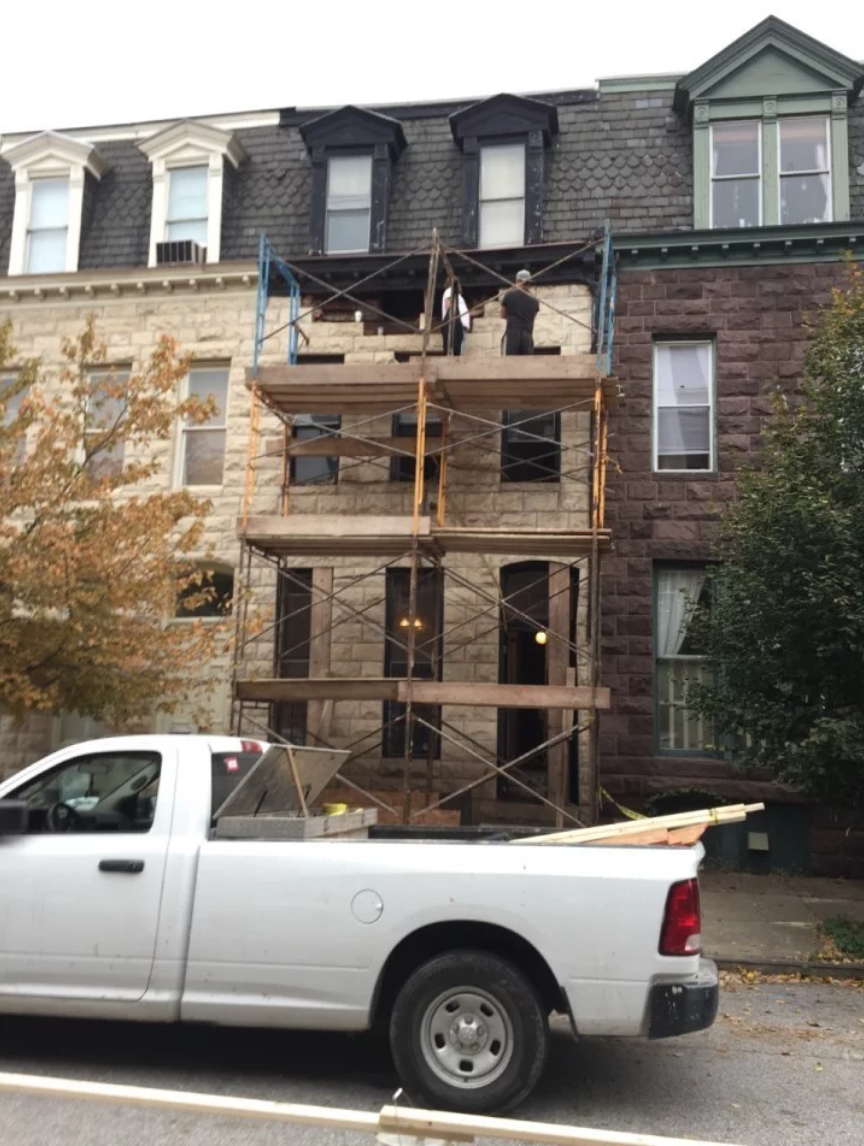Also published on the Huffington Post.

Courtesy of Ashref El Shazli: BroCAR Properties, 2016: Doing another of their signature “down to the studs” total renovations in Washington, DC
There’s been a lot of buzz in the last few months about changes coming to our beloved real estate market. I’ve heard everything from, “we’re seeing the start of a correction” to “this sucker is about to blow.” So what’s the formula for figuring out if the apocalypse is coming? Real estate is local. While I’m not an expert on what’s going on in California real estate, I can weigh in on the Washington, D.C. real estate market. And I believe it generally does apply to other markets.
Come with me, back to 2007 if you would. I was plugging away at a job at a national builder in Rockville, Maryland, when the hammer came down and they filed for bankruptcy. We weren’t alone on the chopping block.
What happened in the years to come was fascinating. Not while I was living it of course – that part was miserable. There were no real estate jobs to be had and anything remotely interesting in my career path now paid half of what I had made before – and it wasn’t like I was rolling in money. It was sad watching an entire industry, one I loved, collapse.
The years came – 2007, 2008, 2009 – and so did the “correction.” There were lots of distress sales. Property after property had abandoned furniture, kids toys piled up in the corner, evidence of a hasty exit– it was jarring.
By today’s standards, those properties were steals. But not many people were buying. Money was tough to borrow and life wasn’t as easy as it was in the years prior. Homeowners would be foreclosed on and they were so angry they would take their granite countertops with them. It was a hard loss for many. And hard to rebound. That landscape pales in comparison to today’s seller’s market.
The national builders stayed out of the game for a while. When there is a Board of Directors and ultimately, shareholders to answer to, it’s not that easy to start buying land and building houses again. Any entrepreneurial spirit previously afforded by the big boss at the building company is crushed by fear.
When the market started to rebound in 2011 and 2012, it felt like that first sunny day after a month of rain. A couple new homes popped on the market and they were sparkling clean! Buzzing with buyers! Staged! We were just in a total panic a couple years prior, so, how did we get here, and how does anyone know when the right time is to jump back into the game and make money? Someone was clearly out there buying houses and fixing them up again. If it wasn’t the big builders, and it wasn’t the individual homeowner – who was it?
The last housing recession taught me several very important lessons:
- No one knows where the top is until 6 months have passed. But, there are clues when you get there: The luxury market stalls. People who probably shouldn’t be buying houses are suddenly buying houses, as in the case of this article about my beloved hometown. I’m curious how a part time literary specialist and a salesperson in their 30’s can afford a $2M house.
- No one knows where the bottom is until 6 months have passed and there are almost no clues when you get there.
- Solo investors usually lack the resources to take advantage of the right window of time in which to invest. Often risk averse, they will never be the first ones out of the gate when the market rebounds again.
- Large publicly traded homebuilders will never make a killing either because they can’t get back into the market until they are 100% sure it has turned around and can answer as much to their shareholders. And by the time they are 100% sure, they are already at least 6 months past the bottom, so they’ve missed the best deals.
- There is only one group I’ve seen in the DC Real Estate Market who can typically time this right and make the most of the highs and lows – The smaller, local developers. They have anywhere from a few to a dozen employees. They have loyal investors and deep pockets so they don’t pay a lot for their funding. They don’t have shareholders to answer to. They respond to the market immediately and they talk to their many customers regularly. They have an eye for what people want and they make that happen. Most importantly – they are investors in the community. They want to see it improved, they want to be a part of that change, and they plan to stick around for the long haul. There are no fly by night developers and builders who sneak into town and make a killing. The ones in the Washington DC real estate market are the ones who have been here for a long time, not the ones reading about it in the news from several states away.
Find out who these people are in your market and follow them. If they are selling off a property you thought would be a gem, pay attention. They are either cashing in or they know something is turning. These are the people who have their ear to the ground – more so than anyone else in the game.




